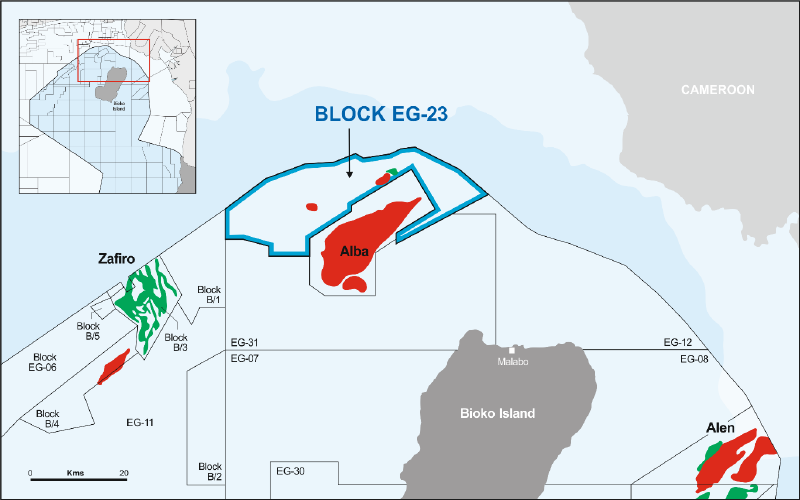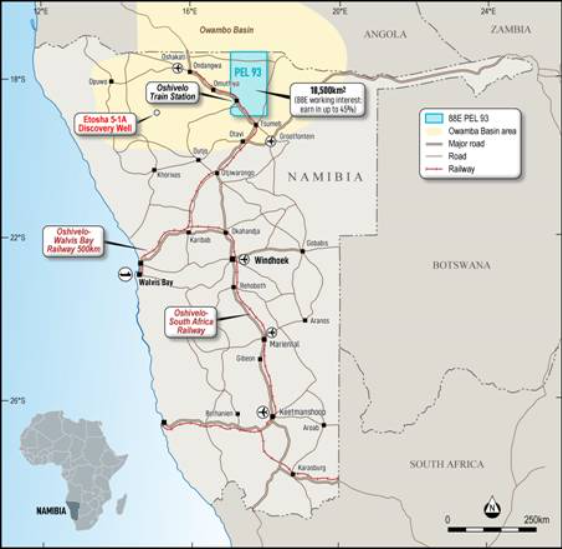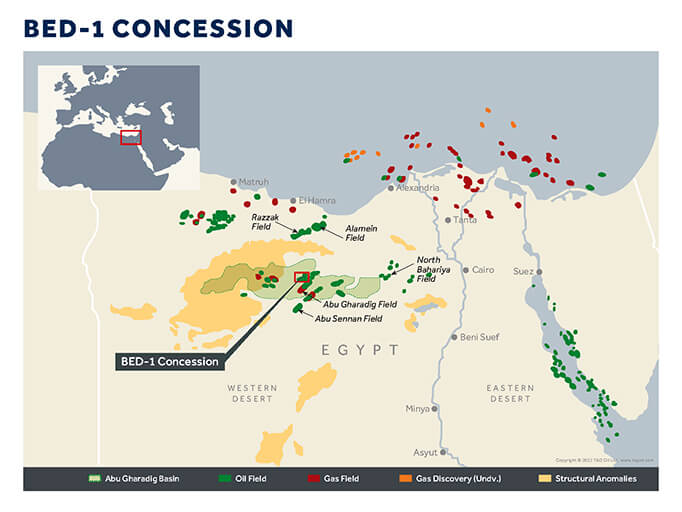Summary on Kenya’s Petroleum Bill 2015, The Associated Model Production Sharing Contract(PSC)Bill 2015
By Berryl Claire Asiago
Part 1:
Kenya’s recent discovery of oil and gas should accelerate and contribute enormously to the achievement of national objectives, provided that proper policies, laws and strong institutional frameworks are put in place. Challenges lie ahead for Kenya’s nascent industry as with the energy sector at large, in the light of the ongoing low oil prices. Nonetheless, all is not doom and gloom for the country.
On the 3r of May, the eleventh parliamentary- (fourth session) reviewed the Petroleum Bill to which a lot of amendments were considered. The Petroleum (Exploration, Development and Production) Bill 2015 is currently being reviewed by The Senate and associated first schedule Model Production Sharing Contract (PSC) is also in the final stages of review.
Furthermore, despite the obstacles the country is facing in the implementation of the pipeline project within the region, there are headways made to which the country will match forward with other alternatives measures.
Meanwhile, this summary will review The Petroleum bill based on five aspects. Firstly section 9 which deals with promotion of upstream investments section 77-79, Local Content and training sections 80-85 which gurantees payments and revenues and finally incentives and sanctions that concern the above mentioned discussions. Part 2 of the review will include a brief discussion of the The model PSC which looks into firstly the changes made in existing fiscal system.
If the bill passes into a law, the idea that corporate income tax will now be levied on companies rather than on government at the time of sharing profit oil.
Lastly, the changes in the investment incentive by replacing the cost recoverabilty of interest on debt incurred for development costs with a 15% uplift on development spending
Kenya’s Petroleum (Exploration, Development and Production) Bill 2015
- Promotion of Investments
A number of developing countries were long resistant to certain principles and concepts embodied in promotion of investments. Presently, it is an indication that a government is interested in attracting foreign capital, and is a way of signalling a commitment to liberal market policies. Kenya, has since incorporated this element into the strategies for attracting foreign investment and capital into the territory. The country has acknowledged the challenges in the sector especially the capital intensive nature and the technological complexity of the industry. Therefore according to Section 9 of the bill, the government will strife to create a conducive environment for investments in upstream petroleum operations and infrastructure development, including formulation of guidelines in collaboration with relevant ‘national government agencies’ on development of upstream petroleum investments and to disseminate them among potential investors. The challenge this section portends is the fact that there is neither mention of devolved government ‘agencies’ nor have the said agencies been credited towards the promotion of these investment. Despite the fact that most oil and gas activities are often carried out in the counties where, at the very least seamless process of implementation are required. Also the bill only highlights the role played by the ‘national government’ towards the facilitation of access to land for exploration activities, without acknowledging the pivitol role played by the devolved governments in the same process. Even though subsoil rights are held by the state on behalf of the citizens as indicated in the Article of Constitution and section 41 of the Petroleum Bill, the subsurface rights on the other hand both private and public belong to communities and country governments respectively. Hence their participation or at least indulgence in the process is imperative for seamless acquisition of land areas.
A related point to promotion of investments is the need to ensure that upstream petroleum operations and infrastructure development are carried out for the benefit of the people of Kenya. This goes ahead to cement the guarantees accorded in the promulgated Constitution of Kenya in 2010, which considerably altered the governance structure of the country and increased the participation of citizens in administrative decision-making processes. To ensure that the concern associated with resource curse as noted in other resource rich countries, is dealt with at the inception stages of the industries growth and hopefully that the benefits accrued from the resource will eventually promote the living standards of the people in Kenya.
- Local Content and Training
A debate that has grown in the current millennium is the emergence of Local Content requirements “Hereinafter LC”. LC is policy tools used by governments to generate economic benefits for the local economy, which go beyond fiscal benefits.
There is no doubt that definition of the term LC is key in successfully implementing objectives laid down. The Kenyan bill defines LC to mean ”the added value brought to the Kenyan economy from petroleum related activities through systematic development of national capacity and capabilities and investment in developing and procuring locally available work force, services and supplies, for the sharing of accruing benefits’.
According to sections 77-79, two objectives appear pertinent and crucial in successfully conducting operations in Kenya. One is the need for an investor to give priority to services provided and goods manufactured in Kenya as long as the goods meet the specifications of the petroleum industry as prescribed by the Kenya Bureau of Standards or in absence of a Kenyan standard any other internationally acceptable standard that the Authority will approve. Secondly an investor must ensure that priority is given for the employment or engagement of qualified and skilled Kenyans at all levels of the value chain.
It is clear that Kenya has taken the ”National content’ rather than the ’community content’ route. Where consideration is accorded to employment of personnel, services provided and goods manufactured in any parts of Kenya as long as they meet specifications of the petroleum industry. There is no immediate necessity for an investor to utilize services or goods from the local community which is commonly affected with oil and gas activities . Nevertheless, the concept of social licence from the local community cannot be disregarded, in that success of a project -without interruptions- solely depends on the community consent. Hence an investor will have to review their strategies on how to incorporate community content to the extent possible. Especially, with the existing devolved government that concerns itself with immediate community interests rather than national interests. While reviewing Kenya’s content it is important to evaluate it against that of the Tanzanian local content development, where the government considers that local content to be successful both ”Regional” as well as ’local” content in the oil and gas activities must be incorporated. Presently Tanzania LC mandates an investor to incorporate personnel, goods and services both regional as well a local community perspectives .
Also an investor will be required to submit both short and long (annual) content plans , which are subject to approval by the Petroleum Authority (who will be appointed by the Ministry). These plans should address a number of issues like, a) employment and training; (b) research and development; (c) technology transfer; (d)industrial attachment and apprenticeship; (e) legal services; (f) financial services; (g) insurance services; and (h) succession plans for positions not held by Kenyans.
Notably the bill further mentions that the cost of LC should not be higher than that of any other place. A concept that will be very difficult to ascertain, since the manufacturing industry in Kenya is still at inception stages hence, achieving certain percentages of labor, goods and services may not suffice with the country’s limited industrial base. Also, where the local supply issue involves equivalent goods, price does indeed become predominant issue, however in many other instances it may just be secondary. The primary factor would be more about the quality factor than the price. Notwithstanding that the bill requires that such specifications be in line with the Kenya bureau of standards or internationally acceptable standards. Since the country has yet to develop the industry, it is obvious that the standards being referenced are not yet in place. This sort provides a bottleneck for an investor to circumvent the law ( creative compliance) and utilize the opportunity to opt for international standards, which will give preference to foreign goods as opposed to local goods. Making the objective of LC completely obsolete. Hopefully the the Ministry through its mandate, will make LC regulations that foresee the loopholes and avoid creative compliance.
Nevertheless, Kenyan government in its 2006 Energy policy, acknowledge the shortage of expertise within the sector and by that has promoted the training of nationals in the short term to take up the jobs in the long term. Training will be undertaken ( locally) through funds put aside for the training fund. It is however not clear who will undertake the training ( government or contractors). Also, the bill is not clear how much is expected of an investor to put towards the training fund, however, the option has been left open for negotiation in the petroleum agreement.
Payments and Revenues-
Sections 80-85 covers the generated revenues from oil activities. To an investor, compliance with financial and fiscal obligations is imperative. The government will be expecting revenues emanating from, royalties, bonuses, taxes, fees and levies as may be prescribed in the petroleum agreement. Also, where a contractor fails to do so there will be extended legal ramifications as will be detailed in the petroleum agreement.
The bill gives cognizance to equity distribution of resources among the National, County governments and communities . The resources indicated as being shared will be profits accrued from the petroleum activities, the question that arises here is whether the term is profit’ as defined in the Bill amounts to other revenenues which are not inherently profits such (bonuses, royalties and taxes) are part of the profit margin. Never the division of such profits will be distributed in the ratio of 80:20:5 respectively. The national government will take 80% of the revenue, the County government will be apportioned 20% of the national governments share this is subject to a condition, in that the percentage mentioned will only be provided if it is not twice the amount awarded to the county withing the financial year. To the local communities , their share will be equivalent to five percent of the Government’s share. The bill does not clearly state from which of the government (local or national) will the 5% be deducted from. The amount will be payed to a trust fund managed by a board of trustees established by the County Government in consultation with the local community. This payment is also subject to a condition, provided that the amount allocated under will not exceed one quarter of the amount due to the County Government in the financial year under consideration.
Also, the bill is not clearwhether the distribution of these resources in the ratio of 80,20,5 will be distributed after the deduction of cost recovery or profit share. nevertheless a review of the PSC will help understand the logistical issues raised.
About Author
 Berryl Claire Asiago is an energy lawyer in pursuit of her doctoral studies at the UEF law school, in Joensuu Finland. She has a substantive legal academic background and hands-on experience in litigation of petroleum industry in some African countries. From the outset, she has brought an unparalleled commitment to, and knowledge of, the region including key issues that challenge it as well as the tremendous possibilities that exist in marshalling the concept of “national content” to ensure a sustainable future for the people and the environment around them. Berryl possesses an infectious, enthusiastic conviction regarding the pivotal role that legal analysis and development must play to realize potential that lies for countries in Africa.
Berryl Claire Asiago is an energy lawyer in pursuit of her doctoral studies at the UEF law school, in Joensuu Finland. She has a substantive legal academic background and hands-on experience in litigation of petroleum industry in some African countries. From the outset, she has brought an unparalleled commitment to, and knowledge of, the region including key issues that challenge it as well as the tremendous possibilities that exist in marshalling the concept of “national content” to ensure a sustainable future for the people and the environment around them. Berryl possesses an infectious, enthusiastic conviction regarding the pivotal role that legal analysis and development must play to realize potential that lies for countries in Africa.
Currently her work at the University of Eastern Finland is strongly anchored in International energy law, with particular interests in permanent sovereignty of natural resources, foreign investment treaties and rights of a state to regulate in the oil and gas sectors. Her research aims to contribute new perspectives on how best to promote objectives of sustainable economic growth while mitigating the growing challenges surrounding energy regulatory frameworks and energy investments.
Email: berryl.asiago@uef.fi












Thank you for the article. You note that if the bill passes into a law, corporate income tax will now be levied on companies rather than on government at the time of sharing profit oil. However there are legitimate concerns that African governments are missing out on considerable amounts of tax revenue from natural resource extraction as a result of tax incentives and concessions agreed with transnational companies. In addition these companies have been accused of tax avoidance and evasion as a recent Oxfam report confirms. The report shows that all but five companies that hold petroleum exploration rights in Kenya have at least one subsidiary listed in a tax haven or low tax jurisdiction.
Recently it was reported in the Kenyan Business Daily of April 18, 2016 that Tullow Oil has so far incurred $1.5 billion in exploration costs and which will be recovered once production begins. There is concern that in the absence of proper audits, multinational companies may inflate recoverable costs and ultimately deny Kenyans the full benefits accruing from oil production
Further in negotiations with African countries on trade agreements, through the Economic Partnership Agreements (EPAs), the European Union support the call for a ban on export taxes. In view of the fact that export taxes can be important policy tools for African countries to promote local value-addition and develop local industries we need to ensure that Kenya’s Petroleum Bill 2015, The Associated Model Production Sharing Contract (PSC)Bill 2015 supports Kenya’s move away from being an exporter of cheap raw materials and promotes industrialization and diversification of our economies.